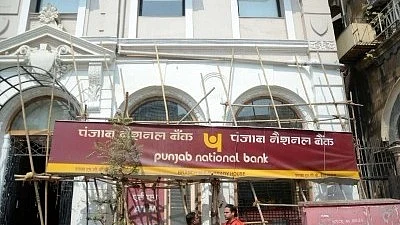The CBI arrested Vipul Chitalia, Vice President of Gitanjali Group of Companies, as a part of its probe into the multi-crore Punjab National Bank (PNB) fraud, on Tuesday, 6 March 2018, an official said.
Chitalia was apprehended at Mumbai airport upon his return from Bangkok where he was since the end of January, and brought to the Central Bureau of Investigation (CBI) office at the Bandra-Kurla Complex for questioning, an official told PTI.
The fraud, worth over Rs 12,000 crore, was allegedly perpetrated by billionaire jeweller Nirav Modi and his uncle Mehul Choksi, the promoter of Gitanjali Gems.
According to Hindustan Times, the court has remanded Chitalia to 14-day CBI custody. The prosecution has alleged that he was a key figure in preparing applications seeking letters of understanding (LoU) from PNB and was reporting to Choksi directly.
The CBI said that Chitalia was being “evasive” in his responses with regards to his alleged role in the fraud, adding that they had reason to believe that along with Choksi, Chitalia was the “brain behind the conspiracy” and that “crucial and incriminating documents that are yet to be recovered are within the exclusive knowledge of Vipul Chitalia," IANS reported.
Chitalia was provided with a lawyer from legal aid, since his legal counsel wasn’t available. In his defence of Chitalia’s involvement in the case, the lawyer argued that his client’s name had not been mentioned in the concerned FIR and that he had, in fact, been “falsely implicated” by the investigating agency, the report added.
It is alleged that Choksi and Modi got LoUs and foreign letters of credit (FLC) of over Rs 12,000 crore, issued in favour of foreign branches of Indian banks, based on fraudulent claims.
The accused officials of PNB did not enter the instructions for these LoUs in their internal software to avoid scrutiny. They were sent through an international messaging system for banking called SWIFT, which is used to pass instructions among banks globally to transfer funds.
An LoU is a guarantee which is given by an issuing bank to Indian banks having branches abroad to grant short-term credit to the applicant. In case of default, the bank issuing the LoU has to pay the liability to the credit giving bank along with accruing interest.
(With inputs from PTI, Hindustan Times and IANS)
(Hey there, lady! What makes you laugh? Do you laugh at sexism, patriarchy, and misogyny? Do 'sanskaari' stereotypes crack you up? This Women's Day, join The Quint's Ab Laugh Naari campaign. Pick up that beer, say cheers, and send us photographs or videos of you laughing out loud at buriladki@thequint.com.)
(At The Quint, we question everything. Play an active role in shaping our journalism by becoming a member today.)
